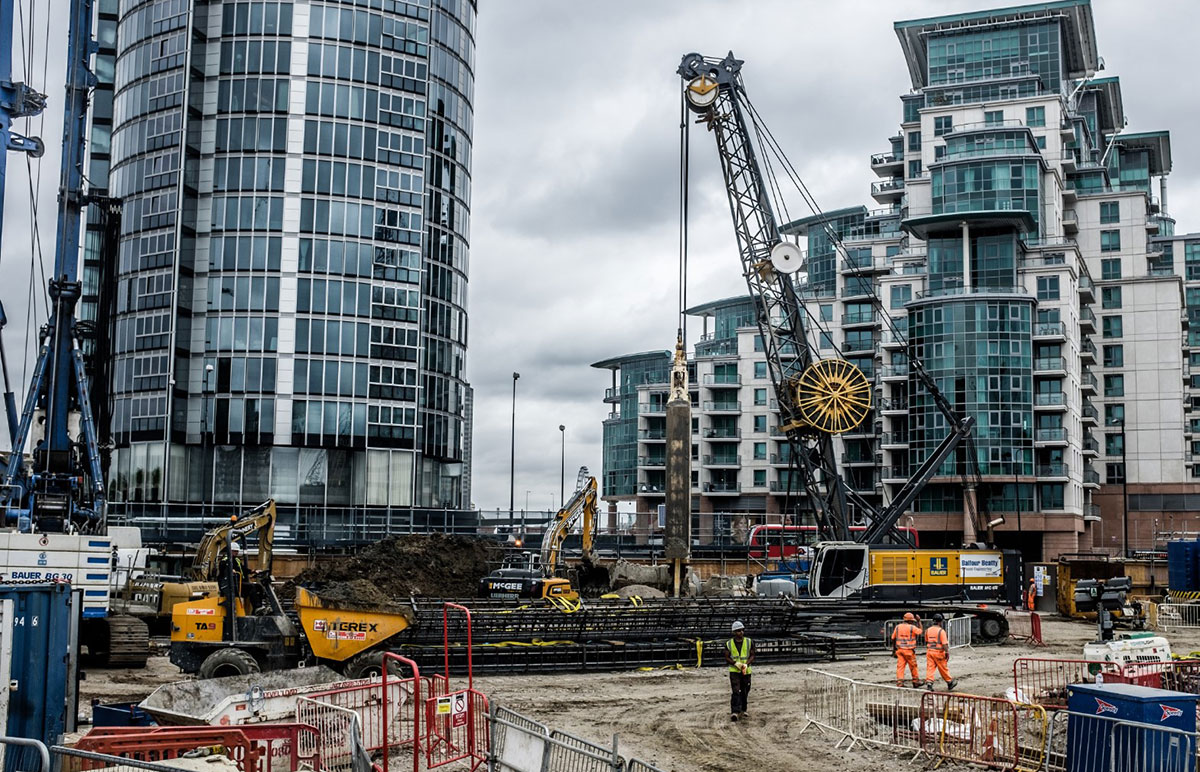Unknown Facts About Geotheta
Unknown Facts About Geotheta
Blog Article
Facts About Geotheta Uncovered
Table of ContentsSome Of GeothetaFacts About Geotheta RevealedA Biased View of GeothetaThe Greatest Guide To GeothetaOur Geotheta Statements

They conduct site investigations, collect examples, carry out lab tests, and analyze information to review the suitability of the ground for construction projects - Geotechnical Engineers. Based upon their searchings for, geotechnical designers supply referrals for foundation design, slope security, maintaining structures, and reduction of geotechnical dangers. They work together with various other experts, such as designers, architectural designers, and building groups, to ensure that geotechnical considerations are integrated right into the general job design and application
By examining the actions and homes of dirt and rock, they can determine potential geotechnical threats such as landslides, dirt settlement, or incline instability. Their experience aids prevent failures or crashes that can endanger lives and residential property. Right here are some in-depth responsibilities and responsibilities of a geotechnical engineer: Website Investigation: Geotechnical engineers conduct site examinations to gather data on subsurface problems.
They analyze the data to recognize the homes and actions of the soil and rock, including their stamina, leaks in the structure, compaction characteristics, and groundwater conditions. Geotechnical Evaluation and Style: Geotechnical engineers assess the information gathered during site examinations to evaluate the stability and viability of the website for building and construction tasks. They carry out geotechnical computations and modeling to review aspects such as birthing capability, negotiation, slope stability, lateral earth pressures, and groundwater flow.
Our Geotheta Statements
Foundation Design: Geotechnical designers play an important function in developing foundations that can securely sustain the desired framework. They examine the soil problems and load needs to establish the proper foundation kind, such as superficial foundations (e.g., footings), deep structures (e.g (https://www.imdb.com/user/ur185987626/?ref_=nv_usr_prof_2)., heaps), or specialized strategies like dirt renovation. They consider aspects such as settlement restrictions, bearing capacity, and soil-structure communication to establish ideal foundation designs
They evaluate building and construction plans, display site activities, and perform area assessments to verify that the design recommendations are complied with. If unpredicted geotechnical issues arise, they evaluate the scenario and offer suggestions for remediation or modifications to the style. Danger Assessment and Reduction: Geotechnical designers analyze geotechnical dangers and threats linked with the project website, such as landslides, liquefaction, or dirt erosion.

Partnership and Interaction: Geotechnical designers work carefully with other specialists included in a project, such as designers, architectural engineers, and building teams. Reliable interaction and collaboration are important to incorporate geotechnical considerations into the general project layout and construction procedure. Geotechnical engineers supply technical competence, answer questions, and make sure that geotechnical needs are met.
A Biased View of Geotheta
Below are some types of geotechnical designers: Structure Designer: Structure engineers concentrate on making and examining structures for frameworks. They assess the soil problems, tons requirements, and website qualities to identify the most proper structure kind and design, such as shallow foundations, deep structures, or specialized strategies like stack structures.
They assess the variables affecting slope stability, such as soil properties, groundwater problems, and incline geometry, and develop techniques to stop slope failings and mitigate threats. Quake Engineer: Earthquake designers focus on assessing and developing structures to hold up against seismic pressures. They evaluate the seismic threat of a site, evaluate soil liquefaction potential, and create seismic style requirements to ensure the security and strength of structures throughout quakes.
They carry out area screening, accumulate samples, and evaluate the gathered data to characterize the soil residential or commercial properties, geologic formations, and groundwater conditions at a website. Geotechnical Instrumentation Engineer: Geotechnical instrumentation designers focus on tracking and gauging the behavior of dirt, rock, and frameworks. They set up and keep instrumentation systems that check factors such as dirt negotiation, groundwater levels, incline movements, and architectural displacements to assess performance and offer very early cautions of possible problems.
Geotheta Fundamentals Explained
They conduct examinations such as triaxial tests, consolidation examinations, straight shear tests, and leaks in the structure tests to gather data for geotechnical analysis and design. Geosynthetics Engineer: Geosynthetics engineers focus on the design and application of geosynthetic products, such as geotextiles, geogrids, and geomembranes. They make use of these products to boost dirt security, strengthen slopes, offer drain services, and control erosion.
They have a like this tendency to be investigative individuals, which means they're intellectual, reflective, and inquisitive. They are curious, methodical, logical, analytical, and logical. Several of them are also social, suggesting they're kind, generous, cooperative, client, caring, handy, compassionate, tactful, and pleasant. Does this audio like you? Take our free occupation examination to discover if geotechnical designer is among your top job suits.
In the office setting, geotechnical engineers make use of specialized software application devices to do computations, produce designs, and evaluate information. They prepare reports, testimonial project specs, connect with clients and staff member, and coordinate project activities. The workplace setup provides a helpful atmosphere for research, evaluation, and collaboration with various other experts associated with the task.
The 9-Second Trick For Geotheta
They often see project websites to perform website investigations, examine geotechnical conditions, and gather data for analysis. These sees include taking a trip to various places, in some cases in remote or difficult terrains. Geotechnical designers may perform soil tasting, conduct examinations, and monitor building tasks to ensure that the geotechnical aspects of the job are being implemented properly.
Geotechnical designers also work in specialized geotechnical labs. In these facilities, they carry out experiments, execute examinations on dirt and rock examples, and analyze the design residential properties of the products. Geotechnical research laboratory designers work thoroughly in these environments, dealing with testing devices, running tools, and tape-recording information. They team up with various other laboratory staff to guarantee precise and trustworthy testing outcomes.
Report this page